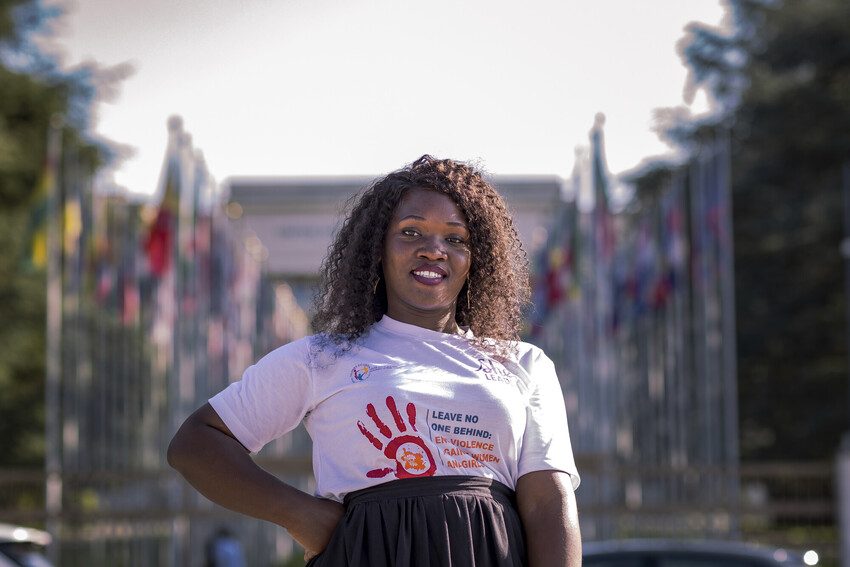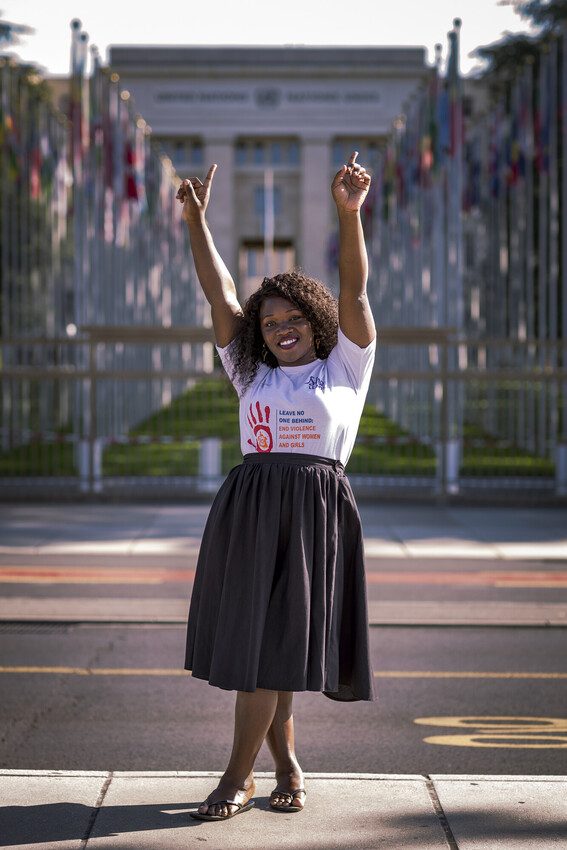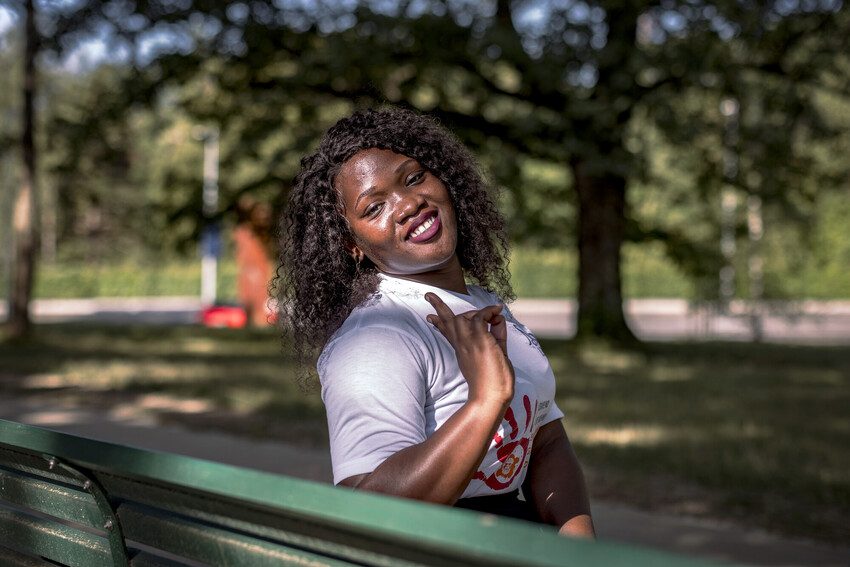Racheal demands a political voice for girls with disabilities
Despite facing discrimination for having a disability Racheal embraces who she is and calls on other young people to do the same. Her activism has led her all the way to the Human Rights Council to represent girls with disabilities and give them a political voice.

“Growing up with a disability is not easy, especially in Uganda,” says 26-year-old Racheal.
As a young girl, Racheal faced stigma and exclusion because of her disability. “I was seen as abnormal and worthless,” she says. The prejudice she experienced growing up ignited a passion in her to fight for the rights of people with disabilities, recently travelling to Geneva where she spoke at the United Nations on the discrimination girls and young women with disabilities face.
She continues, “I was bullied because I walk differently from others. Out of fear that children would imitate my movements, I didn’t dare to get off my chair at school. I felt inferior from a young age.”
When she was younger, to protect her from discrimination, Racheal’s parents decided not to take her to village gatherings, where music was played and her siblings danced and ate together. “People always told my parents that they were being punished because they had a child with a disability,” she explains.
Harmful disability myths
Racheal explains that not only do girls and women with disabilities often face harassment in Uganda, but they are also more likely to be subject to sexual violence. She says: “Imagine being attacked, but you can’t see who the perpetrator is. Let alone flee. Disability makes girls and young women vulnerable and an easy target.”

Racheal also explained the harmful deep-rooted myths surrounding disability.
“For example, that you can get rich from having sex with a girl with a disability. Or that all your bad luck would disappear. So-called witch doctors, often self-appointed medicine men, pass these kinds of myths along as advice to ‘patients.’ Almost all girls who are disabled and pregnant are so because they were raped.”
Talking about sexual violence or reporting it is out of the question as the community usually blames and shames the girl and her family. “Often girls do not dare to confide in someone about what they have experienced until years later,” shares Racheal.
Saying no to disability prejudice
One day, Racheal and her mother were walking through her village and saw a sign about activities organised by a group of girls and women with disabilities.
“Whereas I used to avoid other children with disabilities for fear of being associated with them, I was now actually looking for a way to connect with them. It felt like a life-changing opportunity.”
Racheal could not have known at the time that the sign would be the start of her activist career. “In the group, I saw that other girls and women didn’t let their disabilities hold them back. I wanted that too. It was such a relief to be able to share my experiences with others.”
“For years I didn’t accept my disability. When you do, your world opens up.”
Rachael
During various trainings, Racheal learnt more about her rights and how to tackle prejudices about disability.
“Where I used to make myself small, the group challenged me to make my voice heard. Now I go into communities and teach girls and young women to stand up for themselves and their disabilities. I also advocate in schools and universities for inclusive facilities such as accessible restrooms and adapted educational materials.”
Advocating at the United Nations
Racheal recently travelled to Geneva with the She Leads programme, where she spoke about some of the issues that girls and young women with disabilities face at the United Nations Human Rights Council.
“I hear so many stories in Uganda about exclusion, discrimination, and violence against girls with disabilities. It’s great to be able to represent them. I am their voice here.”

Representation in politics
Along with 2 other She Leads activists, Racheal was able to input on resolutions on girls’ rights and interact with fellow delegates.
“I was also able to address all member states on violence against women in politics. Female politicians in Uganda still face threats, online harassment, and sexual abuse. To make politics safer and more inclusive, the experiences of girls and women with disabilities must also be listened to.”
When we ask Racheal if she has a message for other girls with disabilities, her answer is brief. “For years I didn’t accept my disability. When you do, your world opens up.”
About the project
Racheal is part of the Integrated Disabled Women Activities foundation, an organisation supported by the She Leads programme run by Plan International with funding from the Dutch government. An important part of the programme is to support and fund feminist and girl and young women-led organisations so that they can advocate for girls’ rights. She Leads operates at all levels: locally, nationally and internationally.
She Leads is a five-year programme (2021-2025) by Plan International, Defence for Children-ECPAT, African Women’s Development and Communication Network, and Terre des Hommes, in strategic partnership with the Dutch Ministry of Foreign Affairs. She Leads is being implemented in Uganda, Ethiopia, Kenya, Ghana, Mali, Sierra Leone, Liberia, Lebanon, Jordan, and at national, regional, and international levels.
Education, Youth empowerment, Activism, Children with disabilities